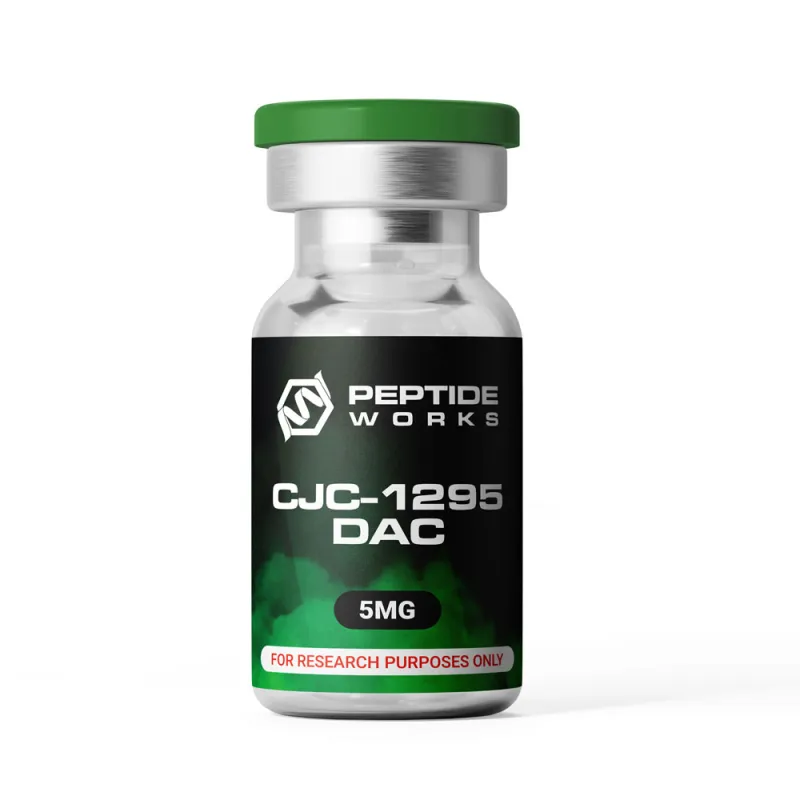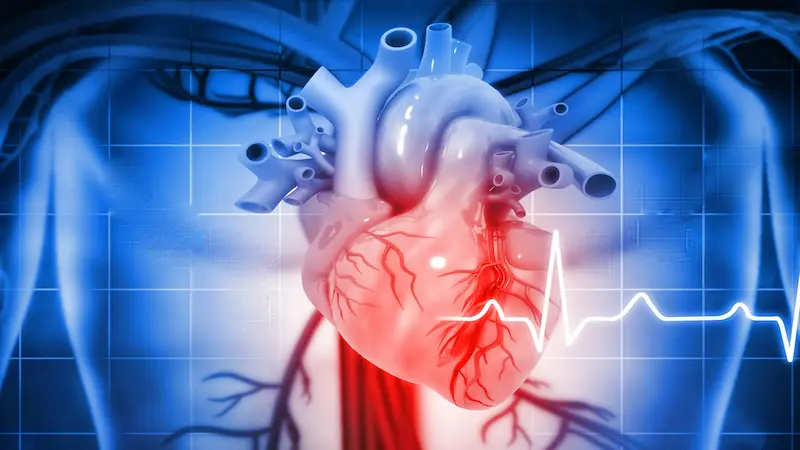
PROMO!
First order? Get 10% OFF with this code: 1storder
Written by

Labs test CJC-1295 safety against HGH peptides in controlled studies. Early data points to notable differences, but research is still ongoing.
Lab findings show that CJC works with natural pituitary function. It does not replace your natural hormones. Some studies report fewer blood sugar issues with CJC than with growth hormone.
CJC with DAC lasts longer in the body. HGH Frag targets specific body processes. All compounds are for research only. Peptide Works ships research materials worldwide to labs. Initial reports suggest potential safety advantages with CJC in long-term protocols.
Understanding these safety differences requires examining each factor individually, rather than making direct comparisons without enough side-by-side data. Most researchers begin by looking at what happens at the injection site.
Explore CJC-1295 from Peptide Works, a growth hormone-releasing peptide that supports natural GH production while minimizing injection frequency for long-term research use.

Research documents that CJC-1295 can cause mild injection site reactions in some subjects, while HGH peptides show minimal reactions.
Lab studies document mild redness, swelling, and soreness that last several hours in test subjects. CJC shots cause local irritation due to peptide structure and pH levels.
HGH Peptides cause fewer injection problems but need daily shots in research. Studies document pain scores in the mild range for CJC, with synthetic growth hormone showing similar mild discomfort levels.
CJC with DAC shows similar reaction patterns but needs longer time between shots. What you can’t see at the injection site matters more the changes happening inside the body with blood sugar.
Discover HGH Peptides from Peptide Works, research compounds that stimulate growth hormone release through targeted pituitary interaction.
HGH has demonstrated it can raise blood glucose in lab studies, though CJC-1295 shows plausible but limited data for minimal blood glucose impact direct comparisons are still needed.
Research tracks glucose levels during both compound use. Traditional growth hormone can create insulin resistance over long research periods, while CJC keeps blood glucose stable in controlled studies.
HGH Frag shows no glucose effects due to selective fat-targeting. Lab data shows CJC offers safer glucose profiles for long research use, and these body differences affect long-term research planning.
This glucose stability connects to something even more fundamental how these compounds work with your body’s natural hormone production.
Discover CJC-1295 with DAC at Peptide Works, designed for extended half-life and sustained GH stimulation, ideal for protocols requiring less frequent administration.

CJC-1295 does not suppress natural growth hormone production in research subjects. Some growth hormone approaches may affect natural GH through feedback mechanisms, though direct comparative data with CJC-1295 remains limited.
Studies show CJC stimulates GHRH receptors, which enhances natural hormone pulses. Research finds normal GH patterns continue with CJC use, while synthetic growth hormone replacement can suppress natural production through feedback loops.
CJC with DAC keeps this safety benefit despite longer half-life. Lab studies show normal recovery when CJC protocols end this protection of natural function is a major research safety benefit.
Preserving natural hormones creates a ripple effect that protects the receptors receiving these signals long-term.
Explore HGH Frag 176-191 with Peptide Works, a specialized peptide that selectively targets fat metabolism without impacting blood glucose or growth pathways.
Long exposure to growth hormone compounds can reduce receptor sensitivity in research models. HGH Peptides may cause receptor problems with continuous use, while CJC-1295’s natural stimulation patterns are being studied for potential receptor tolerance effects comparative studies are still ongoing.
Lab protocols monitor binding efficiency and response curves during long trials. Research cycling helps prevent receptor problems while maintaining data quality.
HGH Frag Peptides shows minimal receptor effects due to selective targeting, and studies show proper protocol design keeps receptor sensitivity.
This receptor protection becomes crucial when considering cardiovascular safety. Healthy receptors mean healthier cardiovascular responses during research.

Both compounds affect heart parameters through different pathways. CJC-1295 may increase heart rate slightly in some research models, while HGH Peptides can cause fluid retention and high blood pressure markers.
CJC provides steadier hormone levels in studies, though direct cardiovascular comparisons with other compounds need more research.
Lab data shows consistent plasma levels with CJC with DAC, avoiding traditional peptide spikes. Studies monitor ECG changes, blood pressure, and heart rate changes throughout protocols both compounds need heart screening before research participation.
These cardiovascular considerations directly influence how researchers design safer administration schedules.
Research protocols show significant administration differences between CJC-1295 and HGH Peptides that affect safety profiles.
CJC typically needs weekly administration in lab studies, while traditional HGH Peptides need daily administration in research protocols.
CJC with DAC extends administration intervals, reducing injection frequency risks. Studies show fewer total injections decrease side effects and improve protocol compliance.
Research shows proper timing and cycling enhance safety margins for both compound types lower frequency administration with CJC reduces infection risks and injection site trauma. Behind every safe protocol lies stringent quality control measures.
Laboratory safety relies on quality of research grade peptides that follows rigorous manufacturing protocols. Research require purity levels of over 99% to have accurate results and avoid contamination risk.
Peptide integrity is maintained during research protocols with storage at controlled temperatures. Peptide Works provides research-grade peptides meeting lab quality specifications for worldwide research applications.
Third-party testing verifies peptide identity, purity, and sterility before research use, while documentation standards require batch records, certificates of analysis, and proper chain of custody procedures.
When quality standards are in place, researchers can confidently focus on selecting the optimal compound for their specific research needs.
Successful peptide research needs matching compound characteristics with specific safety requirements and research objectives.
Choose CJC-1295 for studies needing sustained growth hormone elevation with reduced administration frequency and preserved natural function.
While direct comparisons are limited, current research shows CJC-1295 is generally well tolerated in studies, with mild side effects and a different impact on blood sugar and natural hormone rhythms compared to synthetic HGH peptides.
Select HGH Peptides when protocols require precise timing control and established safety databases. Consider HGH Frag for metabolic research that avoids growth effects and glucose complications.
Peptide Works supplies premium quality, research grade compounds including all major peptide variants with reliable worldwide shipping.
All products discussed are supplied for research purposes only and are not intended for human use.
[1] Teichman SL, Neale A, Lawrence B, Gagnon C, et al. Prolonged stimulation of growth hormone (GH) and insulin-like growth factor I secretion by CJC-1295, a long-acting analog of GH-releasing hormone, in healthy adults. J Clin Endocrinol Metab. 2006 Mar;91(3):799-805.
[2] Alba M, Fintini D, Sagazio A, Lawrence B, et al. Once-daily administration of CJC-1295, a long-acting growth hormone-releasing hormone (GHRH) analog, normalizes growth in the GHRH knockout mouse. Am J Physiol Endocrinol Metab. 2006 Dec;291(6):E1290-4.
[3] Kim SH, Park MJ. Effects of growth hormone on glucose metabolism and insulin resistance in human. Ann Pediatr Endocrinol Metab. 2017 Sep;22(3):145-152.
[4] Heffernan MA, Jiang WJ, Thorburn AW, Ng FM. Effects of oral administration of a synthetic fragment of human growth hormone on lipid metabolism. Am J Physiol Endocrinol Metab. 2000 Sep;279(3):E501-7.
[5] Møller J, Nielsen S, Hansen TK. Growth hormone and fluid retention. Horm Res. 1999;51 Suppl 3:116-20.
ALL CONTENT AND PRODUCT INFORMATION AVAILABLE ON THIS WEBSITE IS FOR EDUCATIONAL PURPOSES ONLY.
DISCLAIMER: These products are intended solely as a research chemical only. This classification allows for their use only for research development and laboratory studies. The information available on our Peptide Works website: https://peptide-works.com/ is provided for educational purposes only. These products are not for human or animal use or consumption in any manner. Handling of these products should be limited to suitably qualified professionals. They are not to be classified as a drug, food, cosmetic, or medicinal product and must not be mislabelled or used as such.
Peptide Works
Related Articles

What are the Best Cognitive Peptides?
Cognitive peptides are short chains of amino acids that researchers are exploring for their potential effects on brain function. They

Achieving increased skin pigmentation without prolonged sun exposure has been demonstrated with Melanotan peptides in research. Two commonly studied options,

Can PTD-DBM Hair Growth Peptide Stop Balding?
Hair thinning and balding affect millions worldwide, often leading to frustration and limited options. This challenge has driven researchers to